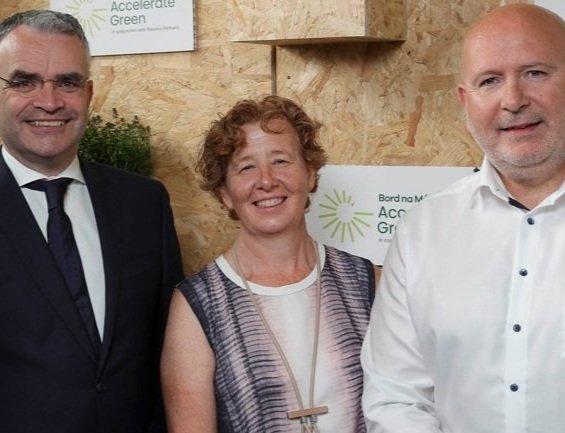Muckaway Emissions Are the Next Big Tender Question—Are You Ready?
It’s the least glamorous part of construction—muckaway, spoil removal, site clearance. But it’s becoming one of the most high-stakes items in public tenders.
Why? Because muckaway and site clearance are major Scope 3 emissions sources—and now they’re being scrutinised by procurement teams, auditors, and investors alike.
Greenwashing Starts with a Spreadsheet—Is That Your Emissions Strategy?
Let’s cut to the chase.
If you’re still using manually created spreadsheets to report emissions, your process is already at risk.
In 2025, guesswork is greenwashing, and regulators, auditors, and county councils are no longer buying it.
You may think you’re compliant. You may think you' have it covered.
But here’s the truth: emissions spreadsheets don’t stand up in a Scope 3 audit—and they definitely don’t win tenders.
The Illusion of Accuracy: Where Developers Are Falling Short
Across the construction sector, many developers are still relying on outdated emissions tracking methods such as:
Generic emissions factor charts.
Manual reporting from subcontractors.
Fuel consumption estimates not adjusted for terrain, load, or idle time.
Paper logs that are prone to error or manipulation.
Why Project Owners Must Take Responsibility for Emissions Data
Since 2022, under the Corporate Sustainability Reporting Directive (CSRD) and supported by the EU Sustainable Finance Disclosure Regulation (SFDR), the legal obligation to ensure the accuracy of sustainability disclosures—including Scope 1 and Scope 3 emissions—sits squarely with the project owner. That means government agencies, developers, and investors are now directly accountable for the quality, traceability, and audit-readiness of emissions data across their projects.
It is no longer acceptable to shift this responsibility onto third-party contractors, hauliers, or suppliers. If the data used for reporting is incomplete, estimated, or unverifiable, it is the owner entity, not the subcontractor, that will be held liable under law.
Hub360 & CSRD: Advancing Sustainability and Compliance for Construction & Infrastructure Project Stakeholders
The construction and infrastructure industry faces increasing demands for sustainable practices and strict adherence to regulatory standards. The imminent Corporate Social Responsibility Disclosure (CSRD) mandates are driving the need for user-friendly tools that provide clear transparency and accountability without excessive labour spent on report preparation and compliance verification. Additionally, the industry must account for emissions throughout the value chain. Hub360 stands out as a pivotal resource, fulfilling the diverse reporting needs critical to various project participants such as investors, developers, multinational corporations, and government entities.
Is Enough Happening in Ireland Today to Reduce CO₂ Emissions from Heavy-Duty Vehicles ?
Hub360 were delighted that Dara Calleary, Minister of State for Trade Promotion, Digital, and Company Regulation was present, as it was suggestion that the CO₂ Emissions from Heavy-Duty Vehicles was something that would be dealt with at some future time.
Reduce HGVs Emissions Now & Save Money
Hub360 were invited to speak at Irelands sustainability conference this summer and the message we focused on getting out there at the conference was that organisations can optimise the use of HGVs to achieve both emission reduction and cost savings now in 2023, and to do this it’s simply not rocket science, its straightforward yet highly effective solution: organisations should wholeheartedly embrace change and harness technology to maximise the efficiency of their Heavy Goods Vehicles (HGVs).







